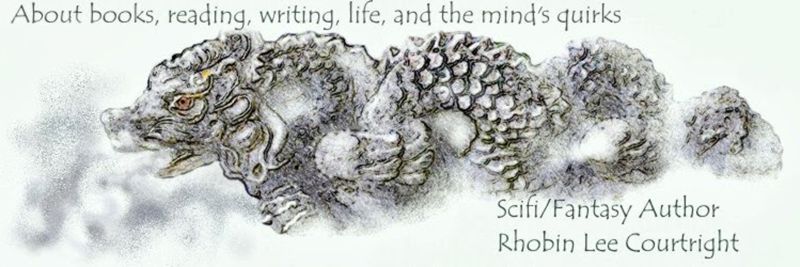Where I believe my strength lies is in emotional tension. In this scene from Loser's Game the lead female character, an outlaw who goes by different aliases, leaves the man she loves more than her own life to protect his reputation and career. I hope fireworks are what the reader senses is happening. Once the reader reaches this point, they know the heroine is a great actress, and a person of integrity despite her reprehensible reputation.
~ * ~
“Don’t worry, Mister Fournelle, the shuttle will be at Starbase Freedom’s private-liner bay.” Jesse looked at him and grinned. “But you don’t trust me, do you? Well, I have even better reasons not to trust a Service Corps officer. Have you already made plans for my arrest as soon as I dock with a stolen shuttle? So, we are at an impasse, are we not?”
Jesse couldn’t keep the mocking tones out of her voice. She hated the way Fournelle looked at her. Like so many others. She knew very well once Fournelle agreed to her plan, he wouldn’t back out, but goading him was irresistible. Besides, she felt mean. For the last few days, she’d purposely bickered with Krayne whenever the opportunity arose.
She took a few steps to the shuttle’s hatch, even took a step inside before she looked at the forbidding officer. “Mister Fournelle,” she tightened her lips at his look, biting the insult lining her mouth. Taking a deep breath she said, “Thank you.”
Fournelle didn't answer her. A movement on the edge of her vision caught her attention. Krayne stopped as she noticed him, his face taut, his jaw clenched and his eyes cold.
"Leaving?"
Exhaling slowly, Jesse hesitated before answering.
"Yes."
"What, no goodbye? Or is everything clandestine with
you?"
Jesse smiled casually. "It's easier. No excuses. No
lies." Her hands gripped the hatch.
"I'm sure it is. Just a clean thrust to the heart and
walk away." He looked at Fournelle. "Leave." As Fournelle's
footsteps fell away, he said, "What about our marriage? Our plans?"
"What marriage?" Jesse scoffed. "When I cross
over into Alliance space, it will be nonexistent. You made the only plans. Don't
blame me for your delusions of a rosy future. We had none." She watched
his eyes flicker, his jaw muscles bunch.
"I see. So just what have I been?"
"An escape." She smiled and shrugged. "In
more ways than one. I'll admit to using you, even enjoying you. You've let me
evade capture, provided some entertainment, and of course, given some physical
relief. But I have no interest in becoming your rehab project. I guess it's
just time to move on before I become bored."
"Too glib, Jesse. I don't believe you."
"How can you?" she said in disparagement.
"You don't even know what I am. I've run into your type before, both as a
man and as an officer. You see the outside with desire, and I'll give you
credit for not backing off when you discovered what's on the inside, but when
you learn about the underside, it will be a different story."
"That's not true. I know you and I know what you
are."
Jesse gave a dry laugh. "Of course it's true. You only
think you know me. I'm not just the pirate and thief you believe. There are
countless Alliance laws I've broken. Did you know Jet ripped a man's throat out
with her bare hands? That she was instrumental in Durant Rosche's death? And
tell me, what will you think the first, second or third time you run into
someone for whom I've whored?" She watched him flinch. "Then what?
You want me to make a list beforehand? That's just for starters, there's more.
Do you want to know all the details?"
She watched him swallow, his jaw setting in rigid lines.
"You can tell me whatever you want. It won't change how I feel. I love
you. Not unless you say straight out you feel nothing for me. Tell me you don't
love me."
"Of course I feel something for you. You came along at
an opportune time. You know what Merit and Thor were doing to me. But love? My
God, you're a Corps officer. If you think I'm stupid enough to allow you to
capture me with sex, and then, when you get bored in a few months or so, pass
me along to Alliance justice, think again." She watched his face
remorselessly, even smiled at his expression.
"And the shuttle? Another theft?"
His acceptance was too quick. She watched for a trap.
"No, it's part of the agreement I made with Fournelle. I told him it would
be at Starbase Freedom before the Nebulae docked. You going to stop me?"
"Yes."
"That's not a wise move."
"Then say it and make me believe it."
Jesse stood in the shuttle's portal for a lifetime. She
slowly moved back to the gangway and stopped directly before Krayne in Ranger
at-ease position. "I don't love you," she stated slowly and clearly.
He looked into her face for another lifetime reading her
truth there. "Go, then. Get out of my sight." His voice held a calm
command.
~ * ~
I hope you enjoyed the short excerpt!
Margaret Fieland is up next on the round-robin. Visit these authors for more scenes with fireworks:
Heidi M. Thomas
Beverley Bateman
Kay Sisk
Anne Stenhouse
Connie Vines
Ginger Simpson
Geeta Kakade
Fiona McGier
Lynn Crain
Margaret Fieland is up next on the round-robin. Visit these authors for more scenes with fireworks:
Heidi M. Thomas
Beverley Bateman
Kay Sisk
Anne Stenhouse
Connie Vines
Ginger Simpson
Geeta Kakade
Fiona McGier
Lynn Crain





